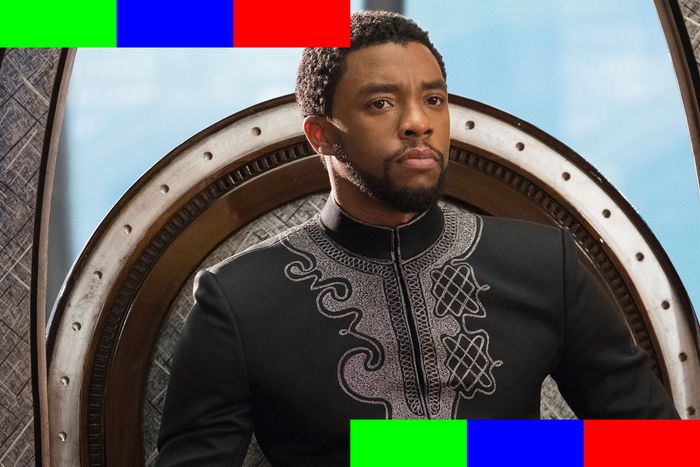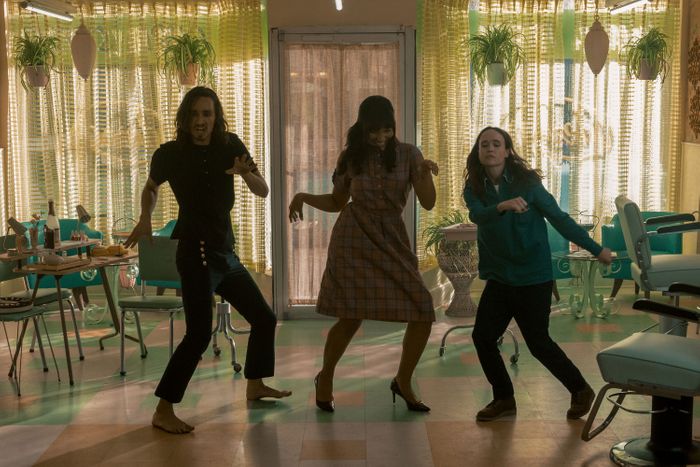
The announcement last month that Mulan would have its American premiere on Disney+ this Friday rather than in theaters prompted plenty of stories about what it all means for the future of feature films in theaters, and for Disney’s bottom line this year. That’s understandable: A big-budget studio blockbuster skipping theaters for streaming is something that would’ve been largely unimaginable before 2020, and Disney could use a big cash infusion right now, given how hard the company has been hit by the pandemic. But having Mulan first is a big deal specifically for Disney+, too — and it comes at a critical time for the streamer.
Unlike Hamilton, Disney+ isn’t including Mulan with its basic subscription, at least not initially. Anyone who wants to stream it immediately will have to pay $30 for access; otherwise, you’ll have to wait until Dec. 4, when Disney+ makes it available to all subscribers. While it’s possible some subscribers (particularly those active on Twitter) will be annoyed at being asked to pay more, I think most current subscribers will either be agnostic on the matter or actually welcome the chance to get access to a high-profile feature film at home with little more than a click of a few buttons. The real value, though, is the halo effect Mulan will have on Disney+: The platform will be getting tons of free promotion and marketing surrounding this relatively new model of movie distribution over a Labor Day weekend during which more Americans than usual will be staying home instead of traveling. And while movie theaters are opening this weekend in many cities, not everyone will be willing to risk catching COVID for the chance to see Tenet. Mulan offers a safe and family-friendly way to have fun during a very unusual holiday weekend.
And then there’s the timing. With more than 60 million subscribers worldwide, Disney+ is already doing far better, far more quickly than even the most optimistic observers expected. And yet, November’s one-year anniversary of Disney+ is, at least theoretically, a bit of a crossroads for the streamer. Many early adopters of Disney+ chose to sign up for the service with an annual plan, and those early subscriptions will come up for renewal in November. Similarly, millions of Verizon customers were able to take advantage of an offer which gave them free one-year subscriptions when Disney+ launched. Verizon recently unveiled a new fee structure that will allow many of those folks to continue free access to the streamer, but customers will need to switch their overall service plan in order to keep getting the service. If they don’t, Disney+ may lose some of those subscribers, too.
Will Mulan be enough? I don’t think the movie is enough of a draw by itself to get folks with one-year subscriptions to stay with Disney+ after November, but it certainly doesn’t hurt to have such a high profile title come onto the service now. What’s more, by announcing Mulan will be free to all on December 4, some potential defectors might decide to re-up for at least another month so they can see the movie. Plus, if Mulan can generate enough new signups over the next few weeks, it will give the service some extra cushioning to help make up for anyone who does decide not to renew in November.
Disney+ is clearly thinking a lot about how else to keep annual plan subscribers in the fold. On Wednesday it confirmed season two of The Mandalorian will kick off on October 30, literally days before those one-year subscriptions are set to expire. There’s also an outside chance the service will be able to get Marvel’s The Falcon and the Winter Soldier, originally set to premiere last month, on the service around the same time. COVID production delays once made it seem that a 2021 release was inevitable, but with a few shows already getting back in front of cameras, it is not unrealistic to think producers could finish up the last few weeks of shooting left to be done before year’s end. Indeed, the Disney+ splash page for the series is still promising the show will debut “this fall.”
Releasing big movies directly to streaming is obviously risky for movie studios, since the upside is so much smaller. Even if Mulan is a smash, it’s hard to see it generating as much revenue as the most successful global theatrical releases, particularly for Disney, which now regularly makes movies which gross north of $1 billion from the box office. But Netflix has proven that selling tickets isn’t the only way to turn an expensive movie into a good investment. The streaming giant is able to charge as much as it does for its service in part because consumers know they’ll get the sorts of high-quality films they used to have to leave their homes to see.
A whole new world for Disney? Mulan is more of a hybrid model because of its two-tier release schedule, but the ability to stream a big title just three months after its paid premiere is still going to be a big plus for many Disney+ customers. In the future, I could see Disney even trying to pressure theater owners to shrink the window on some titles to as little as a month, as Netflix did with some of its Oscar contenders pre-pandemic. (Chains such as Regal and AMC balked then, but they’re starting to come around just a bit, as evidenced by the latter’s recent deal with Universal.) Even though Disney execs have said Mulan is only being released to Disney+ because of COVID and that premium video on demand won’t be the company’s business model going forward, I think we’re going to see a lot more movies debut in the home even after the pandemic ends. (Okay, if the pandemic ends.)
Roku and Disney, Sittin’ in a Tree…
Disney+ is going to be getting plenty of help pushing Mulan to the masses. Like all streamers, it will of course be using its own platform to let current subscribers know about the upgrade option for the movie. But its distribution partners will also be stepping up. If history is any guide, for instance, you can expect Apple to use its Apple TV ecosystem to let users know Mulan is now available for early screening on Disney+. And Tedd Cittadine, head of content distribution at Roku, tells me the company will be going all out to pitch the film. “We are putting our full editorial force behind the launch of Mulan,” the exec wrote via email, saying Roku plans to splash promotion for the movie all over the platform in the next few days, while also emailing users about the movie and pushing it via its social-media accounts. “You will not be able to miss the Mulan launch on the Roku platform this weekend,” he said.
Roku, Apple, and Google will all let its users buy access to Mulan from within the Disney+ app, and per a report from Variety, those upgrades will be subject to the usual transaction fees the tech giants charge companies (30 percent for Apple and Google, 20 percent for Roku). Those fees no doubt help explain why Roku and other companies will be pushing the movie hard: The more virtual tickets Disney+ sells to Mulan, and the more new Disney+ subscriptions are sold, the more shared profit there is to be had by all. Cittadine wouldn’t talk about specific arrangements for Mulan, but he did say the Mouse House has been a great partner during the first year of Disney+. “Disney has set the industry benchmark for how they collaborate with streaming platforms,” he said, citing “the fact that they were able to achieve their five-year subscription goal in less than nine months ” as evidence of how a good working relationship between streamers and distributors such as Roku can yield good results. (Ya hear that, HBO Max and Peacock?)
Don’t have Disney+ yet? You can sign up here. (If you subscribe to a service through our links, Vulture may earn an affiliate commission.)
Black Panther’s Big Numbers
Following last week’s untimely passing of Chadwick Boseman, it made sense that fans almost immediately began seeking out his movies on various digital platforms: Black Panther, 42, and Marshall all surged into the iTunes and Amazon top-ten sales charts within hours after his death was reported. More surprising is what happened when ABC made the very quick decision to replace its normal Sunday lineup with a commercial-free presentation of Black Panther. Viewers — particularly the younger ones who’ve abandoned network TV in recent years — showed up in a big way:
• Even though it has been on Disney+ for months, had a long run on Netflix and aired on cable’s TBS the night before, Black Panther managed to draw a stunning 6.3 million same-day viewers on ABC. That was enough to make it the most-watched entertainment broadcast on all of TV — not just for Sunday night, but for the full week.
• Among adults under 50, the Marvel movie notched a 1.4 rating, ranking it as the No. 1 broadcast telecast of the summer so far in the key demo (tied with the May season premiere of NBC’s America’s Got Talent).
• Black Panther drew the biggest audience for a feature film on any linear network in nearly four years, finishing just below ABC’s December 2016 broadcast of Disney’s Frozen (6.6 million viewers and a 1.7 in the demo.) And combined with an ABC News special about Boseman’s life that aired right after the movie, the movie gave the Alphabet its best Sunday night summer performance since June 2017 (excluding nights with NBA or other sports coverage).
It would be a mistake to read too much into these amazing numbers. There was an extraordinary outpouring of grief over the completely unexpected news of Boseman’s death, so it’s not surprising that his most commercially successful film would draw an audience. And this was also the broadcast premiere of Black Panther, which means millions of viewers who don’t pay for TV finally had a chance to watch the movie for free. Still, the fact that ABC was able to aggregate so many viewers to live TV with programming widely available to stream — and without the benefit of weeks of marketing — should serve as important lesson to corporate suits who’ve decided to write off linear TV (and broadcast TV in particular) as an all but irrelevant medium: Even if you accept the future of TV is in streaming, audiences still crave collective experiences like the ones the ABC telecast of Black Panther offered. Likewise, you can believe, as I do, that most viewers prefer to watch on-demand, on their own schedule — and still see a place for curated content served up on a schedule, whether it’s for a one-night event or a weekly series.
Signs of evolution? I don’t know who inside the ABC/Disney/Marvel empire had the idea to quickly rush on a showing of Black Panther, but it’s the sort of agile and strategic thinking networks need more of in order to successfully pivot to the streaming-dominant era of TV. Another recent example of smart adapting: CBS and sister company Paramount Pictures getting together late last spring to revive the CBS Sunday Night Movie franchise with a collection of classic Paramount blockbusters. Ratings weren’t quite as good, but the movies did surprisingly well and generated decent social media buzz. And in both cases, linear networks were able to get substantial audience tune-in without spending that much money, either on the content or marketing. Movie nights aren’t going to be what saves network TV, of course. What will is realizing that the old network model — spending hundreds of millions of dollars on dozens of mediocre shows, all with the hope of finding an elusive Big Game-Changing Hit — may not be the best game plan anymore.
A New Nielsen Report Card
During the first few weeks of the pandemic, Nielsen started posting a weekly list of the top ten most-consumed streaming titles, in part to illustrate how much more content audiences were watching during the lockdowns. The ratings giant took a break from those lists over the summer, but starting today, Nielsen says it will publish its top-ten streaming list every Thursday, year-round. For now, it’s only measuring content on Netflix and Amazon Prime Video, and it isn’t counting mobile viewing (though Nielsen says it’s hoping to add more platforms to its rankings in the future).
Unlike its primetime TV ratings, Nielsen isn’t reporting the average audience for a show each week but rather the total number of minutes consumed. That means older shows which have hundreds of episodes available to watch start with an advantage. By contrast, a new ten-episode Netflix sitcom will only have about 300 or so minutes available in total, while a movie like Work It (Buffering’s review: Watch It!) maxes out at 90 minutes. (The Nielsen streaming ratings are also a bit more delayed, with each week’s rankings measuring viewing from about three weeks earlier.)
So what’s on the first list, which covers the week ending Aug. 9? As was the case in the spring, Netflix titles dominate, taking up all ten slots, starting with the most-streamed title of the week, The Umbrella Academy. (The show dropped its second season July 31, though Nielsen counts viewing of both seasons.) Interestingly, the rest of the list is made up entirely of well-known acquired programs, most — though not all — with big episodic libraries. CW’s In the Dark, which has produced just 26 episodes over its run so far, managed to land at No. 7 for the week. The show’s second season debuted on Netflix days after wrapping on the CW July 9. Check out the full list below:
1. The Umbrella Academy (Netflix)
2. Shameless (Netflix)
3. Grey’s Anatomy (Netflix)
4. The Office (Netflix)
5. Criminal Minds (Netflix)
6. NCIS (Netflix)
7. In the Dark (Netflix)
8. Dexter (Netflix)
9. Supernatural (Netflix)
10. Parks and Recreation (Netflix)
Parting Shot
“I remember knowing every single person’s name and their story and their kids’ names. There’s something pretty great about that, which I think at our scale is pretty tricky to do anymore.”
— Lisa Nishimura, Netflix’s VP of indie film and documentary features, talking about her early days at the company in a Q&A with THR’s Mia Galuppo. The article also includes some great photos of Nishimura’s Mar Vista, California home, which includes over 150 plants, several vintage typewriters, and a very good Australian Labradoodle named Norbu.



